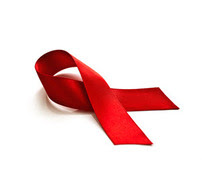

Emergencies and HIV/AIDS
People living with HIV need to plan to stay safe and healthy during a natural disaster or other emergency. An emergency may make it harder for you to take your HIV medications or have access to your health care providers or your pharmacy. To avoid interruptions in HIV treatment or access to medications, you should always have a 10–14 day supply of all your medications on hand and take other precautions. Learn More >>



EMERGENCIES AND HIV/AIDS
Emergencies can take many forms. They include natural disasters (hurricanes, floods, wildfires, etc.), which can directly or indirectly cause severe threats to public health and/or wellbeing; accidental emergencies, such as an explosion at a chemical plant or a train derailment; and terrorist hazards. They also can include epidemics, such as pandemic flu.
All Americans should have a plan for what to do during an emergency, and be prepared. But people living with HIV have special considerations to think about. For example, if you are living with HIV, a natural disaster or other emergency may make it harder for you to take your HIV medications or have access to your health care providers or your pharmacy. To avoid interruptions in HIV treatment or access to medications, you should always have a 10–14 day supply of all your medications on hand.
In addition, in the event of an outbreak of a new disease or epidemic (like influenza), you should consult your health care provider to determine whether you need to take specific precautions because you are living with HIV.
It’s also important to be aware that natural disasters may affect air and water quality—which can be even harder on people living with HIV because of their weakened immune systems. If you have HIV disease, these environmental hazards can increase your risk for opportunistic infections. Disruptions in food and clean water sources can also lead to the possibility of water-borne infections and illness. If sanitation and hygiene are questionable, it’s important to follow proper food and water safety guidelines. For more information, see CDC’s Food Safety Resources.
FIND LOCAL RESOURCES
There are many resources in and around your community to help you plan and prepare for natural disasters and other emergencies. The U.S. Department of Homeland Security’s State Homeland Security and Emergency Services pageprovides links to state homeland security and public safety websites.
In addition, USA.gov's list of state, local, and tribal agencies can help you locate government offices and services near you to assist you in your emergency planning efforts.
EMERGENCY RESOURCES FOR PEOPLE LIVING WITH HIV
The Federal Government offers several resources and programs that may be particularly useful to people living with HIV/AIDS during a natural disaster or other emergency. For example, the HHS Assistant Secretary for Preparedness and Response offers a special web page with disaster planning resources for individuals with special medical needs.
DisasterAssistance.gov offers access to disaster help and information, including details on over 60 forms of assistance from 17 Federal agencies, including information about the continuation of monthly benefits from Social Security. Individuals can take an anonymous online questionnaire to obtain information about and apply for forms of disaster assistance for which they may be eligible.
The U.S. Food and Drug Administration’s (FDA) Safe Drug Use after a Natural Disaster and Tips About Medical Devices and Hurricane Disasters offer information on the use of drugs that have been potentially affected by natural disasters and the use of temperature-sensitive drug products when refrigeration is temporarily unavailable.





















.jpg)












No hay comentarios:
Publicar un comentario